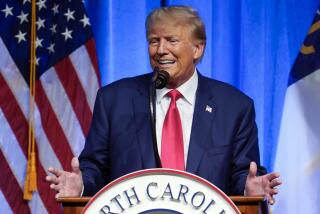Southeast Asia Chiefs End Talks, Plan to Push Trade
Philippine President Corazon Aquino adjourned the Southeast Asian summit meeting today, thanking leaders for their solidarity by attending the six-nation conference here despite terrorist threats.
During the closing ceremony, the leaders signed a Manila Declaration condemning Vietnam’s occupation of Cambodia, reaffirming the goal of a nuclear weapons-free region and pledging to intensify trade and political cooperation.
But they sidestepped the dispute over U.S. military bases in the Philippines.
No major new initiatives came from the two-day conference of the non-Communist Assn. of South East Asian Nations, the regional group’s first summit in 10 years.
No serious incidents of violence were reported. About 1,500 leftists rallied Monday three miles away from the conference site to protest alleged U.S.-Japanese domination of Southeast Asia.
About 10,000 Filipino troops and warships from the Philippines, Indonesia and Malaysia provided security for the summit. Right-wing extremists had threatened to disrupt the sessions to embarrass Aquino’s 21-month-old administration.
In the face of the threats of disruption, the group affirmed its support for the host government. Singapore Prime Minister Lee Kuan Yew, the longest-serving ASEAN leader, said the participants were aware of the risks of meeting in the unstable capital, racked by right-wing plots and a growing Communist rebellion.
But Lee told Aquino that regional leaders heeded the call of Indonesian President Suharto to meet in Manila “to show united ASEAN support at a time when there were attempts to destabilize your government.”
After the opening ceremonies, the ASEAN leaders had adjourned for private talks. But conference sources said the private sessions produced little beyond long-held positions of an association often criticized for lack of direction.
Despite repetition of the goal of a nuclear weapons-free region, ASEAN took no stand on the future of U.S. military bases in the Philippines. The United States is widely believed to store nuclear weapons at Clark Air Base and Subic Bay Navy Base, but Washington refuses to comment.
The lease on the bases expires in 1991, and there is considerable opposition in the Philippines to renewing the agreement.
More to Read
Start your day right
Sign up for Essential California for news, features and recommendations from the L.A. Times and beyond in your inbox six days a week.
You may occasionally receive promotional content from the Los Angeles Times.






